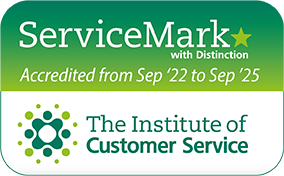Last year MoneySavingExpert founder, Martin Lewis, ran a series of polls on X (formley Twitter), asking people about the differences between banks and building societies.
Many thought there were no differences at all. However, those that did know there were distinctions weren't always able to put their fingers on exactly what those differences were, or what they meant.
Here we break down some of the key differences, as well as some things that make building societies brilliant.
Are banks and building societies the same?
No! Both provide mortgages and savings accounts, but aside from that, banks and building societies are quite different.
Banks are usually owned by their shareholders (who they aim to make profit for), while building societies are owned by customers, known as ‘members.’ The profit building societies make is reinvested to provide long-term value for those members. This difference coined the term ‘mutuals’ – you may have heard Newbury or other building societies referring to themselves in this way, or using the word 'mutuality.'
According to the Building Societies Association (September 2023), building societies have nearly 26 million customers across the UK and have helped 3.5 million people get onto the property ladder. In addition, they hold £370 billion worth of retail savings (19% of all cash savings in the UK). That's quite a bit!
We’ve been at it a long time
Building societies have a long and proud history in this country. In fact, it's the 250th anniversary of the first ever Society this year: Ketley's, who popped up in Birmingham in 1775 to give local working class people a chance to buy a home.
Less than 100 years later, Newbury Building Society began its life under the name Newbury Permanent Benefit Building and Investment Society.
Learn more about the history of building societies here.
Members have a voice
Building societies want their members to have a say in how they do things, working to build meaningful, long-term relationships and deliver great service - some of our current members have been with us since the 1980s!
Each year, building societies hold an Annual General Meeting (AGM). AGMs are a brilliant opportunity for members to meet the people in charge and vote on whether they're happy for them to continue steering the ship.
There are also opportunities to provide feedback, learn about plans and developments for the upcoming year, and ask plenty of questions.

In addition to our AGM, we have an active Member Forum, where customers provide valuable feedback on things like products, digital improvements, and our communications.
We also recently launched Member Talk, which invites our members to a local branch for networking and a series of presentations.
Building societies give back
A vital aspect of mutuality is supporting local people. This tradition can be traced back to the original building societies of the 18th century, which were first and foremost, community-led organisations. Some even met in taverns!
Here at Newbury, our community involvement is wide-ranging and constantly evolving. We donate to and volunteer at local charities, provide funding to grassroots sports clubs, sponsor community events, run financial education schemes in nearby schools, and much more.

For us, mutuality also means we're committed to serving customers in a way that works for them. While many banks continue to close branches in our local areas, we're updating our bricks-and-mortar branches as well as our digital offerings, so customers can access our services how they want to, whether that's over the phone, online, or in person.
The feeling is mutual
Like what you've read? Learn more about the benefits of being part of a mutual and how you can become a member here.
Figures correct as of September 2023.



